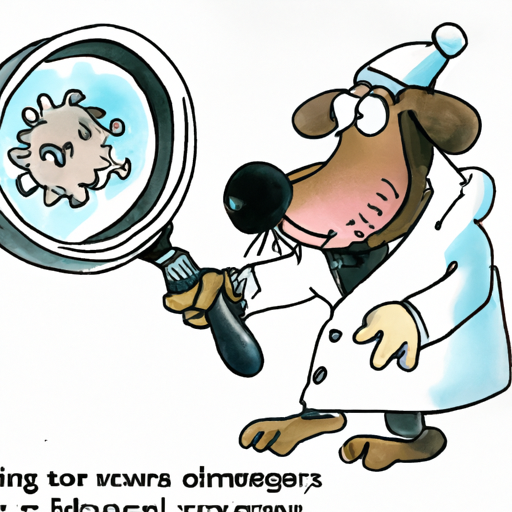As you snuggle up with your canine companion on a chilly night, you may find yourself wondering, “Why don’t dogs get colds?” The answer is not as straightforward as you might think. Dogs do get colds, but their symptoms, causes, and treatments can be different from those in humans.
Table of Contents
– Dog’s Immune System
– Common Dog Illnesses
– Preventing Illness in Dogs
– Understanding Canine Respiratory Health
– Frequently Asked Questions
Key Takeaways
– Dogs do get colds, but they exhibit different symptoms and require different treatments than humans.
– Dogs have a robust immune system that helps them ward off many common human illnesses.
– Regular veterinary care can help to prevent illness in dogs.
Dog’s Immune System
Just like humans, dogs have an immune system that helps them fight off illness. However, their immune system is more robust than ours, which means they can often ward off illnesses that would make a human sick. This robust immune system is one of the reasons why dogs don’t get colds as often as humans do.
But that doesn’t mean they’re immune to all illnesses. Dogs can and do get sick, and when they do, it’s important to provide them with the care they need to get better. OneTopDog offers a comprehensive guide on caring for a sick dog.
Common Dog Illnesses
While dogs don’t get human colds, they can get a canine version of a cold called canine infectious respiratory disease (CIRD). This is a highly contagious disease that can cause symptoms similar to a human cold, such as a runny nose, cough, and fever.
Here’s a quick comparison of common symptoms between human colds and CIRD:
| Human Colds | CIRD |
|---|---|
| Cough | Cough |
| Runny nose | Runny nose |
| Sore throat | Fever |
| Headache | Lethargy |
| Fever | Loss of appetite |
For a more detailed understanding of canine infectious respiratory disease, click here.
Preventing Illness in Dogs
To prevent your dog from getting sick, it’s important to provide them with regular veterinary care. Regular check-ups can help catch any potential issues early, before they become serious problems.
Additionally, keeping your dog vaccinated can protect them from many common illnesses. Vaccines are available for many common infectious diseases, including CIRD.
Here are some simple steps you can take to keep your dog healthy:
- Regular veterinary check-ups
- Vaccinations
- Healthy diet
- Regular exercise
For more tips on how to keep your dog healthy, check out this article.
Understanding Canine Respiratory Health
Understanding your dog’s respiratory health is key to preventing and treating illnesses. Dogs can’t tell us when they’re feeling unwell, so it’s up to us, as caregivers, to watch for signs of illness.
One common sign of respiratory illness in dogs is a persistent cough. If your dog is coughing frequently, it could be a sign of CIRD or another respiratory issue.
For more information on canine respiratory health, visit this page.
Frequently Asked Questions
Can dogs get human colds?
No, dogs cannot catch human colds. They have a different immune system than humans, which means they’re susceptible to different illnesses.
What are the symptoms of a cold in dogs?
Common symptoms of a cold in dogs include a runny nose, cough, fever, and loss of appetite.
How can I prevent my dog from getting sick?
Regular veterinary check-ups, vaccinations, a healthy diet, and regular exercise can all help to keep your dog healthy.
What should I do if my dog is showing signs of illness?
If your dog is showing signs of illness, it’s important to seek veterinary care as soon as possible.
In conclusion, while dogs don’t get colds in the same way humans do, they can still get sick. As caregivers, it’s our responsibility to ensure that our dogs are getting the care they need to stay healthy. Regular veterinary care, a healthy diet, and plenty of exercise can go a long way in preventing illness and ensuring your dog lives a long, happy life.



